Wyniki wyszukiwania
33 results for query Security of supply
Reports(19)
-
Integrating Variable Renewables in Poland | Eight points on integrating variable renewable energy to the Polish power system

The Polish energy mix is changing. While absolute figures still show a rather small share of variable renewables in the generation mix, these will play a growing role in the future. The study of Forum Energii presents eight main areas of action that facilitate the further integration of the renewables in the specific context of a changing Polish power system.
7.12.2017 -
Ensuring reliability of the power system and capacity mechanisms

A stable and reliable supply of energy is the foundation of national energy security, yet it should not burden end users with excessive costs. On the one hand, it is important to keep electricity prices low, as they are the driving force behind economic development and provide opportunities for industrial development. On the other hand, wholesale energy prices should be sufficient to maintain the generating fleet. Since wholesale electricity prices fell to the lowest level in years, concerns have arisen over ensuring an adequate level of capacity and securing stable power system operations in Poland.
28.10.2016 -
Flex-E | How to develop the DSR potential in Poland and reduce the costs of the energy system

The Polish energy sector is entering a new phase of transformation. Planned integration of industry into the the support for energy security offers a chance to reduce by at least 1200 MW peak demand for electricity in Poland during periods of critical load od Polish Power System. this is what results from the analysis of the national potential of DSR services prepared by Forum Energii.
27.3.2017 -
Risk preparedness in an integrated European electricity market

An integrated European electricity market will benefit consumers through lower prices, more cost-effective integration of renewable resources, and improved system reliability. A central question often asked in the context of the IEM is: can Poland rely on resources from neighbouring countries in a crisis situation? Is it safe to integrate market when national transmission system operators (TSOs) are responsible for managing energy systems in Europe.
2.7.2018 -
Options for integration of the Polish energy market within the European Union

Forum Energii examined how the integration of the energy market, one of the priorities of the European Union, will affect wholesale electricity prices in Poland. Depending on the option to integrate markets (with which country the merger takes place and what is its capacity), the wholesale price of electricity in Poland may fall by up to 5%, i.e. by about PLN 8 per MWh.
21.3.2017 -
How to ensure that the consumer improves the security of the energy system and benefits from it?

Ordinary Kowalski can improve the security of the energy system and at the same time save money. It is enough to change the energy tariffs and provide up-to-date information on how much electricity we use. In winter, the power system can be offloaded by 200MW. The annual costs of households could fall by as much as 160 PLN.
1.2.2017 -
Capacity market arrangements in Great Britain - lessons learnt for Poland
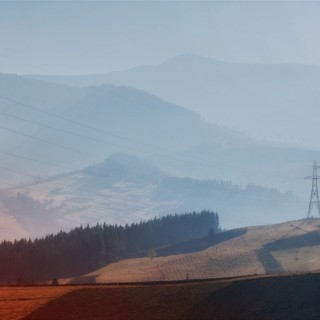
In 2014, the UK government introduced legal provisions for a capacity market in Great Britain. Many countries – including Poland – have since then followed the developments on the island. FAE describes the power market in Great Britain as well as measures to raise its security of supply. It also compares the volume of Great Britain’s capacity reserve with that of Poland. The goal of the project was to analyse the results of the capacity auction in Great Britain in December 2014 and to draw possible lessons for Poland in view of the special situation of the Polish power sector.
6.4.2015 -
Risk of capacity shortage in the Polish electricity system up to 2020
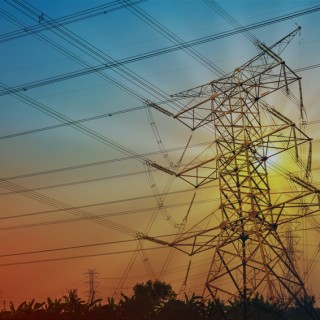
To what extent electricity shortages can be expected in the years 2016/2017? How will the reserves in the power system develop? The reserves in Poland are still relatively high, they were in 2013 at about 13 percent of the annual peak load. In 2018, the reserves will decline to about 8 percent. Assuming the so-called cold reserve, which was introduced in 2014, the reserve capacity, however, is at 11 percent in 2017. According to the provision of new generation capacity in the years 2019/2020 the reserve will increase to approximately 18 percent.
19.12.2014 -
How do we deal with summer peaks? Changes after the crisis in 2015

Will photovoltaics save us from the blackout? Summer peaks still remain a challenge, although over three years have passed, since the crisis in 2015 where the industrial consumers were faced with limitations in electricity supply. In October, Minister of Energy admitted that 2 GW of PV could help Poland to avoid blackout in the future. It has been known for many years. Forum Energii presents its assessment of changes that have been introduced to the energy system to avoid similar situations in the future.
25.10.2018 -
Poland's Energy Policy 2040 in the spotlight

Probable delays of the nuclear energy project, insufficient attention to energy costs and the risk of non-compliance with EU climate and energy targets – these are some of the comments of Forum Energii on the draft Poland’s Energy Policy.
15.1.2019 -
Why compensations of power prices can cause more harm than good

This is the first time such an unexpected turn of events has occurred in the energy sector. The government lost control of the strategic economy sector and seems surprised with the increase in prices and rising import of coal, gas and electricity. This unexpected situation has led to huge astonishment at a time when elections are imminent.
21.1.2019 -
Flexibility of the Polish power system | Diagnosis, potential, solutions

Flexibility of the power system means its ability to maintain uninterrupted operation under conditions of rapid and huge fluctuations in electricity consumption generation. It is an inherent part of the system design and control of its operation. In the analysis, Forum Energii puts forward solutions supporting the improvement of the national power system flexibility. In addition to reducing the costs of the power sector and the improvement in quality and reliability of the electricity supply, their objective is to reduce emissions by the power sector.
12.2.2019 -
Locational market in Poland. Security of supply, costs and the impact on the energy transition

In the latest report Locational market in Poland. Security of supply, costs and impact on the energy transition, Forum Energii recommends changes on the energy market in Poland. It is a response to the emerging problems of the Polish energy transformation - high prices, ageing infrastructure, dominant share of coal. As an example, it presents the functioning of the electricity markets in the United States.
4.7.2019 -
Small steps to big changes | Impact of the "Clean Energy..." package on power sector

We are starting to implement new EU energy regulations. Will the "Clean energy for all Europeans" package heal the Polish energy sector and give it an impulse for development? How can the energy consumer benefit from the changes? In Forum Energii's report "Small steps to big changes", we analyse the provisions of the Package and their consequences for Poland.
12.9.2019 -
Capacity market for review | Analysis of the results of three auctions

The three capacity auctions for 2021-2023 are behind us. What is the result? Has it been possible to encourage manufacturers to make new investments? Does the capacity market support diversification of the mix? How much does the capacity market cost? And finally, do the new EU regulations concerning emission standards mean the end of the capacity market in Poland?
22.10.2019 -
How to fill the coal gap? 43% RES by 2030?
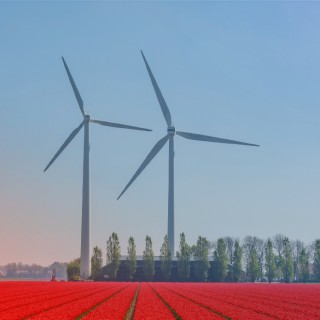
Poland has started phasing out coal. But while production is decreasing, CO2 emission allowances are becoming increasingly expensive. After 2025, when public support for outdated coal blocks runs out, energy companies will want to shut them down. With a decade, at least 10 GW of power may be lost from the Polish power system. How can this gap be filled?
26.10.2020 -
Energy in Belchatow After Lignite
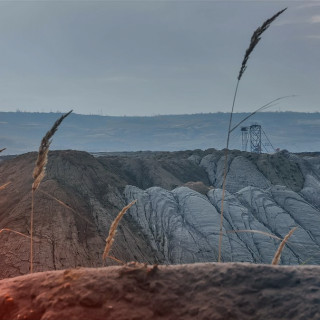
Transitioning Europe's largest coal power plant to a secure, resilient, affordable clean energy future. New study outlines a transition plan for Europe’s largest coal-fired power plant, located in Belchatow, Poland.
20.10.2022 -
To accelerate the development of RES
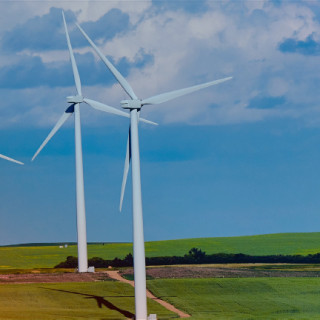
The Polish energy system urgently needs an accelerated development of new renewable capacity. Work is underway in the Polish parliament to liberalise the 10 H distance rule, which stemmed development of onshore wind. Changing this rule is one of the most important decisions on which the success of Poland's energy transition lies. The seemingly small change in the location of investments from the originally planned 500 m to 700 m from residential buildings - is a significant reduction in the potential for wind energy development. This is one of the most high-profile examples of how renewable energy sources are still treated by decision-makers as an unwanted addition to the energy system and face development barriers. Other problems include the length and complexity of the process of locating investments and obtaining planning permits, as well as the lack of connection capacity for installations. In the latest Forum Energii report, we propose solutions to optimise administrative processes and increase the technical capacity to connect new RES projects to the grid.
2.2.2023 -
Energy transition in Poland | 2023 edition

2022 was another year of unexpected events. Russia’s full-scale invasion of Ukraine changed Europe’s approach to fossil fuel imports, particularly from Russia. The resulting energy crisis triggered by high gas prices and the decline in nuclear and hydroelectric production led to record high energy prices across Europe. These events are changing the way European countries look at the energy transition. Meanwhile, the modernisation of the Polish energy sector is still very slow. An overview of the increasingly comprehensive data on the energy sector is published by Forum Energii in the sixth edition of the report ‘Energy Transition in Poland. Edition 2023’.
17.4.2023
Insights(11)
-
Polish Energy Policy until 2040 | First commentary of Forum Energii
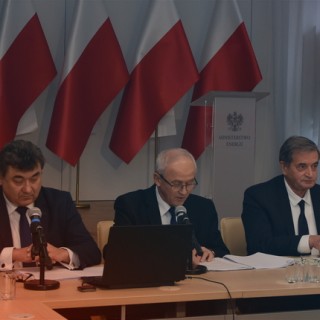
Today, the Ministry of Energy presented the State Energy Policy outline for consultation – a welcome announcement. We consider this a basis for public discussion, in which energy and environmental experts, business representatives and the broader society alike should participate. Energy affects all of our lives. Particularly at times of high energy prices we have to think about what to do next.
23.11.2018 -
Poland’s Energy and Climate Plan to 2030 – not sufficient EU perspective

The National Energy and Climate Plan 2021-2030 is the second strategic document for the Polish energy sector in addition to the long-awaited Poland’s Energy Policy until 2040. It will affect, among other things, investments in the energy sector, the implementation of our international commitments, energy security and improvement of air quality. Therefore, it should not only describe the current state of the Polish energy sector, but above all define future objectives and determine measures and actions to achieve them.
26.2.2019 -
Summer peaks like a boomerang

The functioning of the Polish power system in recent weeks has been very challenging. Further records of power demand are being set, although these were only expected in August, when the average temperature is highest and the water level in rivers is low. The situation is better than in the critical year 2015, but the dispersed sources appearing in the system, especially PV, are not yet optimally exploited. We need to learn how to use them.
28.6.2019 -
1 GW of PV in Poland - this is just the beginning

In Poland we have just reached 1 GW of capacity in photovoltaic installations. Their growth rate has accelerated in the last several months. With the increasing economic attractiveness of photovoltaics, we are no longer wondering whether this development will be continued, but what are its limits. One thing is certain - we will wait much shorter for the next gigawatt and there will be at least a few drivers of this growth.
11.10.2019 -
Draft Poland's Energy Policy 2040 - new and better?

On the 8th of November 2019, the Ministry of Energy has presented an updated draft of Poland's Energy Policy until 2040. Yet, the adoption of the energy strategy will be the responsibility of the new government, including new ministries - the Ministry of State Assets and the Ministry of Climate. In our opinion, it is high time for Poland to address the climate and energy crisis. It is also important for us to start implementing the commitments made at the EU forum. The energy sector should be given a course in line with international trends, and not be allowed to float in a random direction.
29.11.2019 -
The last auction of this kind...

The fourth capacity market auction was held on the 6th of December 2019. Although there were some long-awaited new projects, the Santa Claus gift (which the capacity market support could be) was offered primarily to the existing coal-fired units, which in most cases decided to modernize. They were allowed to participate in the auction for the last time, as the European Union regulations will not allow such participation from next year.
11.12.2019 -
Investment in the energy sector as a remedy for the crisis

After a few weeks of the pandemic in Poland, we know for sure that the virus will infect the economy, even as we finally get rid of it ourselves. We need to act decisively right now. But we also need to think about economic recovery, in which the low-carbon transformation of energy has to take a central place. This is the time for bold decisions, so far postponed. A strategic rebuilding of the sector must be announced today to help society emerge from the crisis and provide long-term benefits.
1.4.2020 -
The capacity market in Poland―more expensive than ever
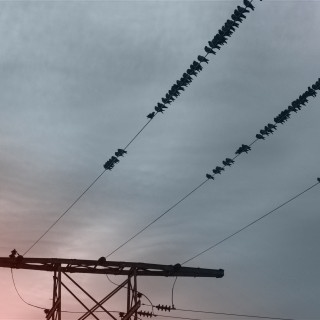
Poland has already held six power auctions. Analysis of their results shows that this mechanism in its current form is not an optimum solution for the country. The capacity market has proved more expensive than anticipated, has failed to curb the increase in electricity prices and, in addition, has contributed to the petrification of the outdated and coal-based generation structure. The arduous task of plugging the coal gap has only just begun, which is why decisions on modernisation and on methods for supporting capacity up to 2030 must be taken urgently.
13.1.2022 -
The end of energy resource imports from Russia?

On February 24, Russia started the Ukrainian war. Nothing will be the same again. Russia's brutal attack made the ongoing conflict around energy resources all the more obvious. In 2021 alone Russia could have earned PLN 500 billion (or $120 billion). from the export of energy resources[1]. This revenue funds the Kremlin's military spending. Now we are considering whether giving up Russian fossil fuels is possible. Undoubtedly, this would be a radical solution with far-reaching and not entirely known consequences. If this were to happen, solidarity and close cooperation within the EU would be more important than ever before. In this article, we analyze what options Poland has to break its energy dependence on Russia.
28.2.2022 -
How to maintain Belchatow's energy future

Europe is going through its biggest energy crisis ever. The attention of decision makers is focused on ensuring energy and heat supplies in the coming months. Meanwhile, long-term challenges and problems in the energy sector that have not been solved before are only accumulating. One of them is the future of the largest power plant in Poland.
15.11.2022 -
Electricity market design: one size won’t fit all

The energy crisis has highlighted imperfections in the EU power market. The current rules were created almost 30 years ago with the aim to incentivise large conventional power plants, but they now need to be adapted to new challenges.
17.2.2023
Events(3)
-
Conference | COP24's contribution to the Paris Agreement | New dimension of energy security
21.11.2018 Villa Foksal, ul. Foksal 3/5, Warszawa
Energy security and climate change is an inseparable but often overlooked topic that should be taken up in the discussion on energy transition. Just ahead of the UN Climate Change Conference in Katowice, The German Marshall Fund’s Warsaw Office and Forum Energii hosted an event - COP24's contribution to the Paris Agreement | New dimension of energy security. You can watch entire conference on our youtube channel.
-
Energy sector by 2030. New energy for change
7.12.2020 konferencja online
>>>Click here to watch the conference<<< This will be a decade of change. The challenges we face due to the COVID crisis have been met with a strong response from the EU – the European Green Deal, strengthened by an unprecedented fiscal commitment towards transformation. As part of the Green Deal, the European Commission has proposed a 55% reduction target in the upcoming Climate Law. In practice, this is a chance to solidify the already happening transformation in Poland. Analyses from Forum Energii and other analytical institutions show that this change is achievable while strengthening the three pillars of the energy trilema - security of supply, affordable energy for end users and environmental protection. How do we prepare for the upcoming decade of change? How do we use EU and national funds to drive this transformation? How do we build a new energy system that will be both safe and environmentally friendly? During the conference, we will talk about what the energy sector will look like in 2030.
-
Panel expert meeting | How to give impulse to new investments - experience of Poland and Great Britain with the capacity market
26.5.2021 zoom
The capacity market as we know it is about to end. From 1 July 2025 it will no longer be able to support coal-fired capacity. Together with rising CO2 emission allowance prices, changes in the power industry are accelerating, and we need a discussion: how to ensure security of supply by 2030, how to fill the coal gap and how to reduce emissions cost effectively. In this context, an important question is whether the capacity market still makes sense, what are the alternatives or how to change it so that it fulfils its role. The Polish energy system needs new capacities, low-carbon sources, DSR, storage and renewable sources.